Everything on model trains, model railroads, model railways, locomotives, model train layouts, scenery, wiring, DCC and more. Enjoy the world's best hobby... model railroading!
How To Convert To DCC
Jamie asks readers:
“I have just converted to n gauge from oo and purchased a couple of hobbytrains plasseur and theurer tamping machines and now wish to convert them to dcc. Has anybody got any idea how to do this?”
Lionel 0-4-0 Switcher Repairs?
Rusty asks:
“Does anyone know where I might get my two Lionel engines repaired? I have 2 that won´t run. One is an 0-4-0 Switcher (die cast) and the other one is a 2-4-2 (plastic) Columbia. I have taken both apart and touched both sides of the armature cover and it tries to move. Both armatures spin when I roll the engine, so they´re not frozen up. HELP!”
Photo Mystery No. 2. Can You Guess The Country Where This Railway Photo Was Taken?
If you scroll down to my posting of Oct 4 you’ll see a scene from a rail yard in a large city. At the time of writing this weeks posting, no one has as yet correctly identified the city where the Oct 4 photo was taken. See the comments under the Oct 4 post if you think you know the answer.
New Mystery Photo #2 – Guess the Country
If you thought that was hard, try and pick the country where this scene was photographed. It is not near a city but is near a small town and the engine is doing some shunting work and reversing. If you want to have a go at guessing the country, then simply add your guess directly below today’s posting using the COMMENTS LINK under the photo.
I will add a reply in the COMMENTS section when/if someone picks the correct answer.
UPDATE –
Modern Day Scenery Ideas Needed
Doug has this question for readers:
I am building a 4×8 ft n scale layout, and I need realistic modern day buildings cars and trucks. I am finding limited items via Walthers and Woodland Scenics. Any help would be appreciated. I am in the U.S.”
Overcoming Kato Passenger Car Lighting Problems
Fred model N scale and asks:
“I am interested in the car interior lighting being offered by the company “Bright-Chips”. I am currently using the Kato lighting in my cars, but have 5 new cars coming and these other lights seem to offer more consistent power delivery, thus less flickering. They also offer more light “color” tones. I am most interested in ease of installation and actual performance. Has anyone used them and can give me any advice?”
Correct Weight Distribution to Increase Locomotive Pulling Power
Samuel asks readers:
“Does one of your blog followers know a way to add weight to my 2 Ho locos to increase their pulling power? Also how to distribute the weight over the wheelbase?”
Richard Shares Photos of the Models he Constructed
Richard sent in these photos to share with readers and says:
“I mentioned I would send a few pictures, this is first shots of section before getting put on the layout, I still have some more details to do, but thought you might like to see these.
Yes, I cut the windows out and used non glare tape inside of houses. Because of space I had to hang a few near the edge of cliff and so with the texture sheet that came with the plans I made the decking, and cut wood to make the railings.”
Richard used these plans:
Sharp-eyed readers will note that Richard has cleverly adapted and extended a couple of the backdrop factory plans to suit his own personal requirements. He’s done a great job!
Cost of Flex Track – Is it Expensive?
Bob wants to hear opinions from readers on the cost of flex track:
“In my old house I had a 4×16 layout. It was built in. We moved in April and I had to destroy it. My new basement is huge and I have set about designing a 10×16 foot HO layout. My prior layout I built using flex track on cork glued to plywood. I just recently priced HO flex track and it was $ 15 for 24 inches , this looks pretty expense if I have 2 scale miles of track on the board. Is this reasonable or am I just looking in all the wrong places?”
Add your thoughts using the COMMENTS link.
Track and Wheel Code Confusion
Online Train Club Member Ray is interested in HO scale and is hoping someone will explain track and wheel codes for him:
“It’s not hard for me to get confused these days, which probably explains why I am still confused with this different wheel and track codes and how they go together.
For example Code 83 track? Code 88 wheels? or Code 100 track? Code 110 wheels? Are there advantages choosing one over another, what works best etc.? Can someone explain things in simple terms for me please?”
Guess Where This Railway Line Is – Which Country or City?
Who will be the first to correctly identify the location of this railway location?
The color of the paintwork on the train might be a clue for some, or the side of the track the train is on, whilst the surrounding buildings might be an indicator for others. If you think you know the country, or better still the city, just add your answer (or guess) using the COMMENTS link below. I’ll reply in the COMMENTS section when someone get the answer correct.
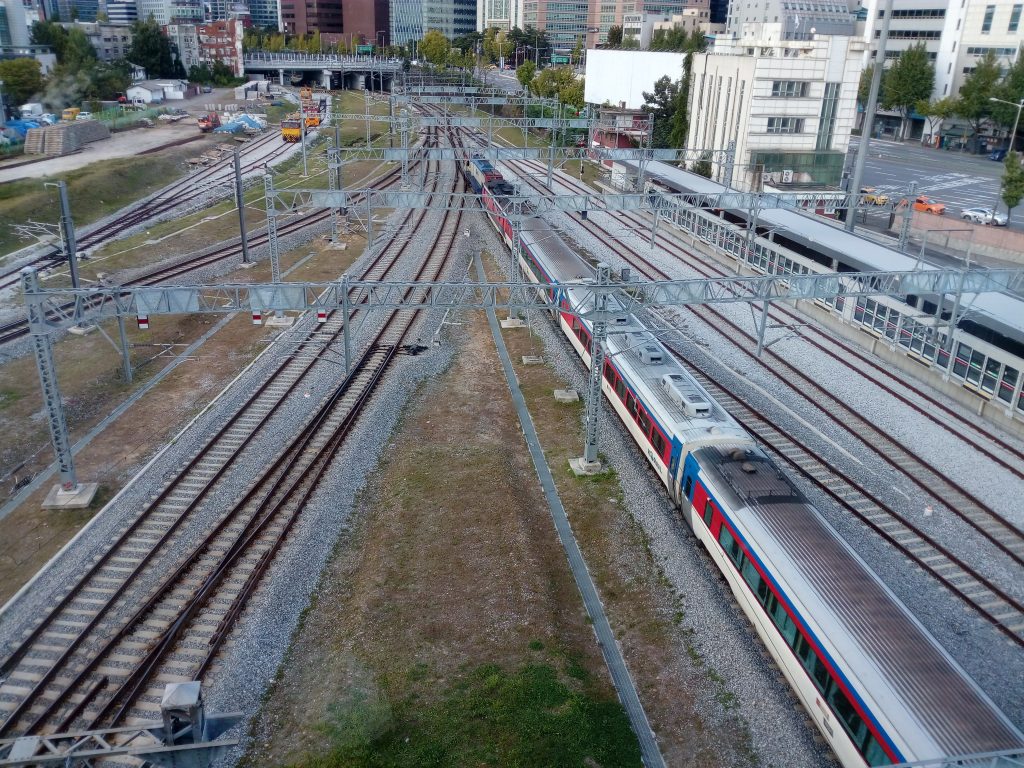
The photo was taken only last week so is very up to date.
UPDATE – The above photo generated a wide variety of possible locations including: Madrid in Spain, Moscow, Tokyo, Taiwan, Frankfurt in Germany, Paris in France, Norway, Philadelphia in the USA, Scotland, Switzerland, Mexico City, United States – Pacific Northwest, England, Australia, Chicago, North Korea, Busan in South Korea, Austria, Yokohama in Japan, Los Angeles, Czech Republic – Near Prague, and Italy. All very different locations in so many ways, yet the real location has a lot in common with railroads in many of those cities and countries.
To see the correct answer simply click on the COMMENTS link below this post.
Well done to Charlie Treft and Martin who were first to guess the collect location. Bill and Ian were close with their suggestion.
Which Decoders Work on Older Engines?
HO guy Steve asks:
“Is there anywhere I can get a list of what decoders will work on some of my older engines?”
Locomotives From USA in the UK
Brock has a follow-up question to one he asked a little while ago:
“I asked a question about if rolling stock or locomotives from the USA were ever in the UK. I got an answer and was told that The US may have sold The UK locomotives before The US joined WWII. Thank you, I have found this is true. I am now wondering what type of locomotives were sold and were they repainted? Thanks.”
Replacing Plastic Wheel Sets With Non-Magnetic
Online Train Club member Byran asks readers for opinions on replacing wheel sets and truck:
“Is it worth replacing plastic wheel sets (axle with two wheels attached) with the non-magnetic ones? I heard replacing wheelsets is difficult and wondered if replacing entire trucks might be a better option? I’ve also been told that metal wheels roll smoother and stay on the track better… is that true?”
DC Power Output
Douglas has this question:
“How long a track can a single HO DC controller work on?”
Updating Older Engines To DCC
HO enthusiast Steve asks:
“How hard is it to upgrade older engines to DCC, and are all upgrades compatible?”
Add your comment below.
If you would like to have your question published on this blog then please use one of the ASK A QUESTION links on this blog.
Union Pacific Electric Train
HO guy Brock asks:
“Has union Pacific Railroad ever used electric locomotives? Thanks.”
Amazing Wild West Town Scene Built By Mike
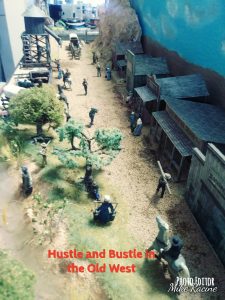 Mike Racine kindly sent in these photos to share.
Mike Racine kindly sent in these photos to share.
I named the town Racine City Nevada. I built this for my Pop because he loves old west stuff. The buildings were awesome and easy to build. It just takes a little patience, a steady hand (sort of) and a bit of creativity. The cool thing is you can add whatever woodworks on the outside and the combinations are endless.
Mike downloaded the plans here.
The figures are all hand painted and everything on the dio is scratch built besides the buildings. I decided to paint up a quick background to give it some depth.
You may notice Waldo in one of the pics. That was just me being goofy. I also have an extremely multicolored horse ( not pictured) that I call a “Horse of a different color” (The Wizard of Oz reference). Those are just kinda like a signature because I like to keep everything light hearted.
I’ve since moved on to complete two other major projects which was a tropical paradise with waves crashing on the beach and my latest project was the Pompeii Amphitheater which came out pretty cool if I say so myself.
I just wanted to show that with your products and a good imagination you can make any train layout or diorama a beautiful work of art. Mining town plans also available here.
Setting Up a Layout Using Old Equipment
Richard is seeking advice from others:
“I am about to set up a layout and I have only old equipment that was bought in the 1970’s-1980’s and I am wondering if I will have any problem adding modern trains or electronics to an old equipment layout? I am going to start building soon. I have a room about 10 feet by 8 feet.”

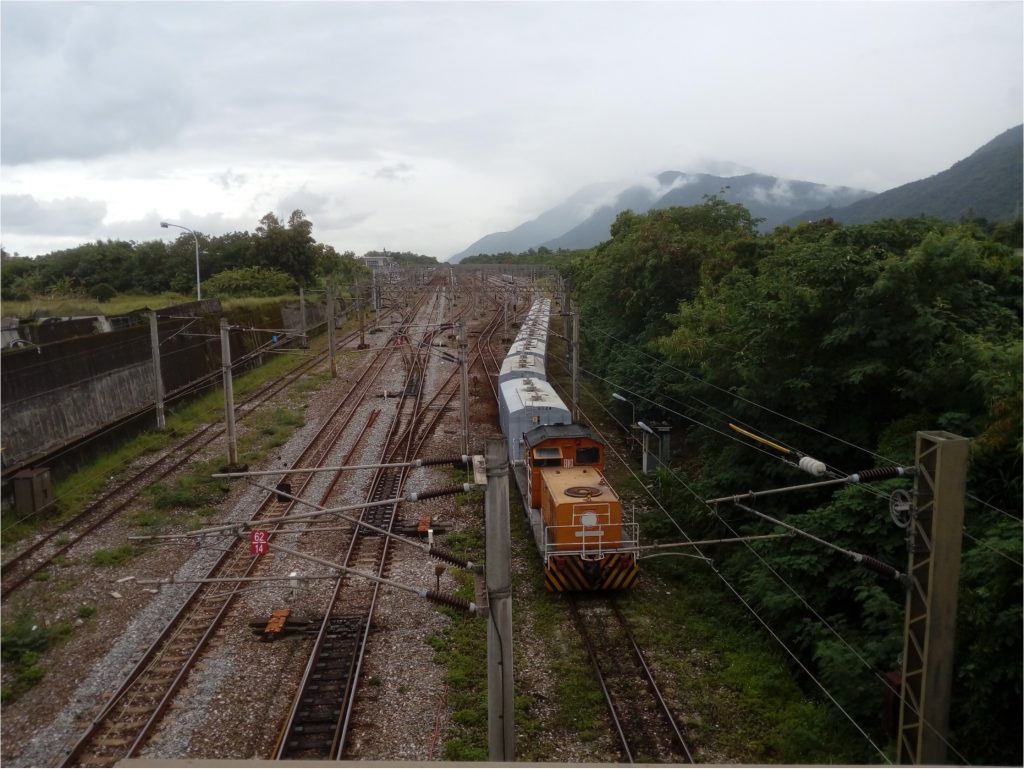
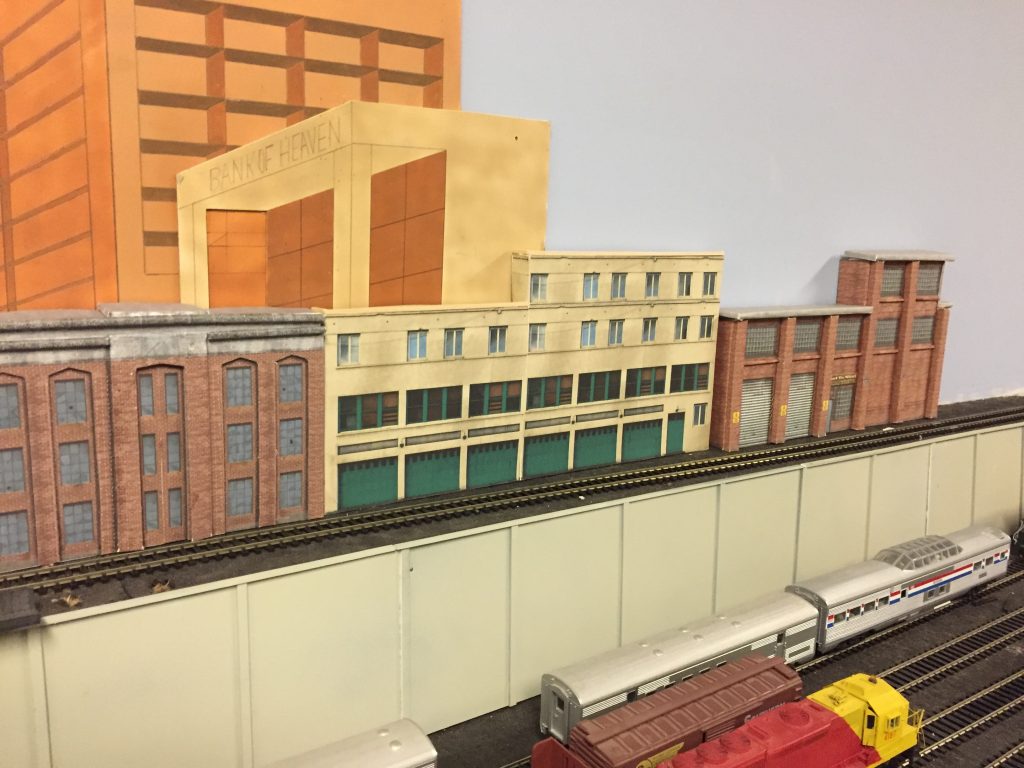
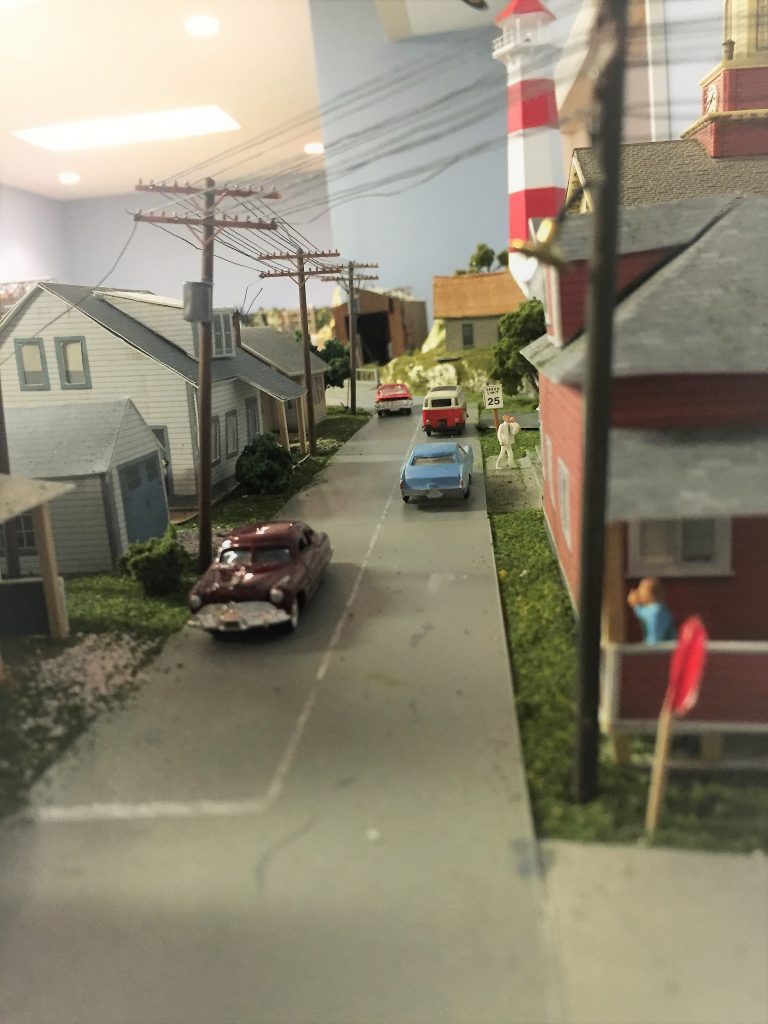
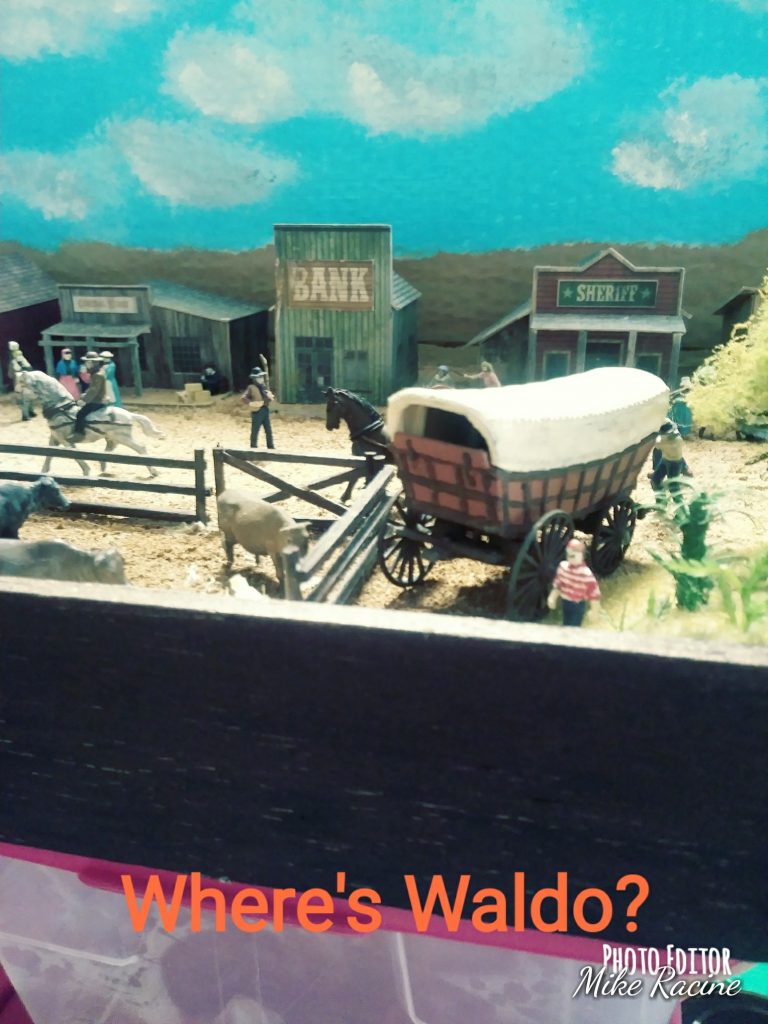
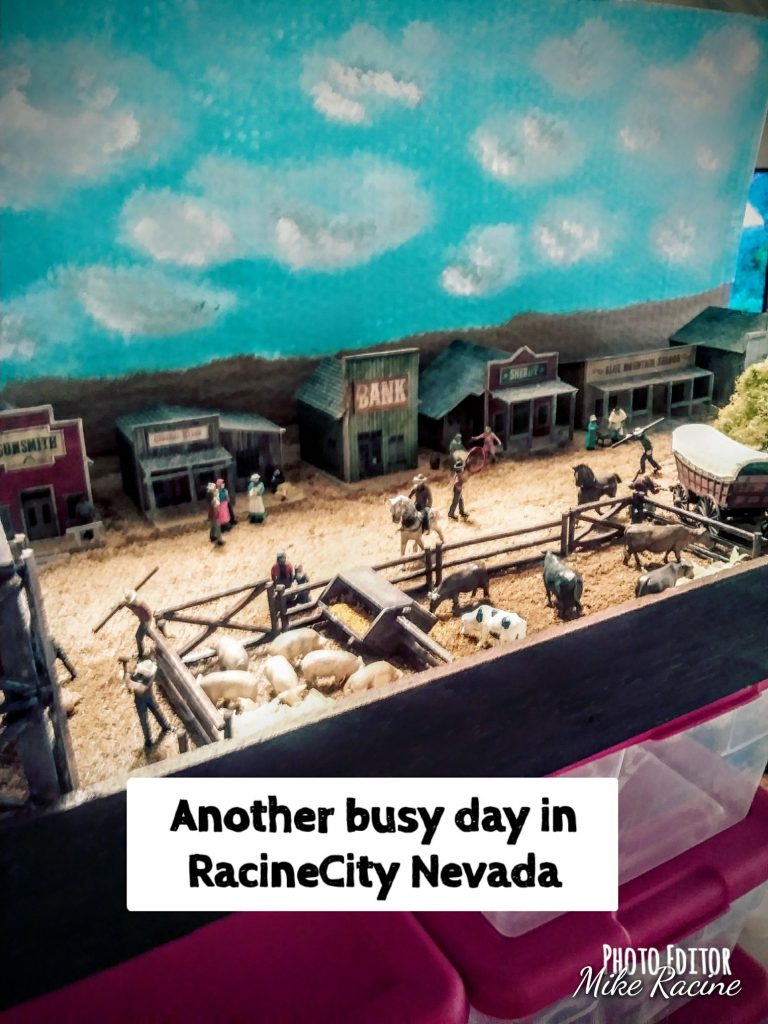
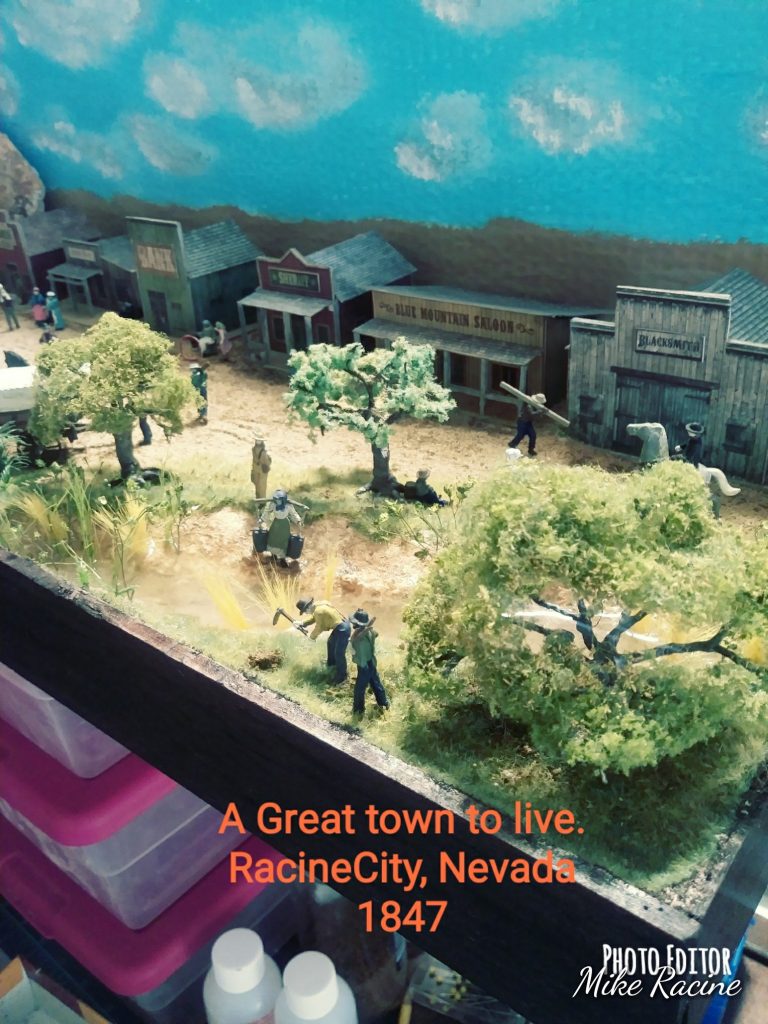
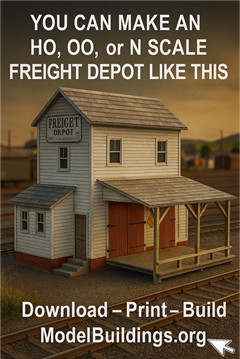
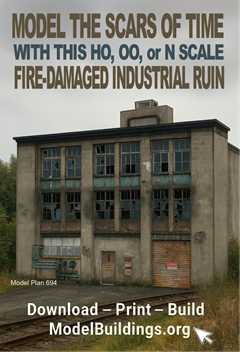
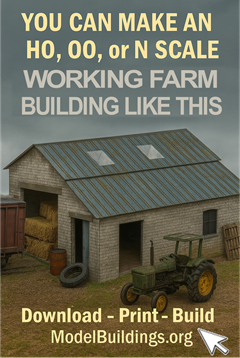
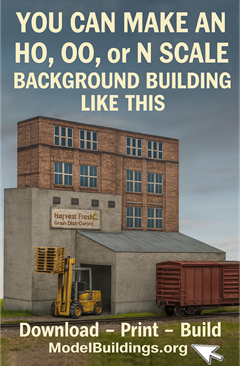
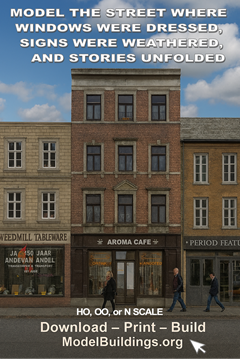



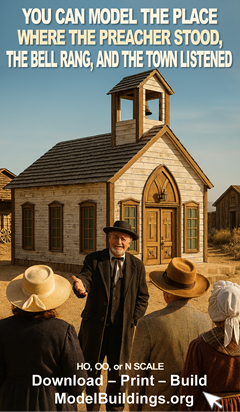
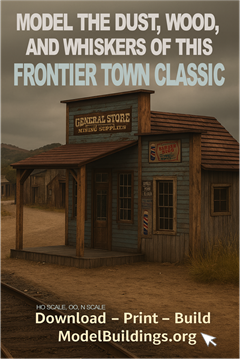
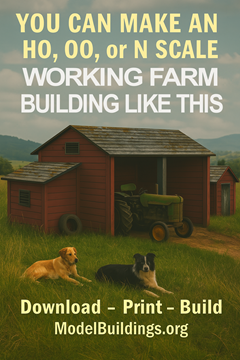
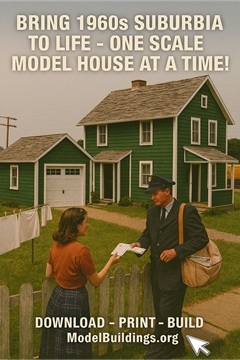
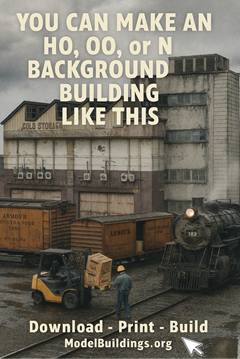
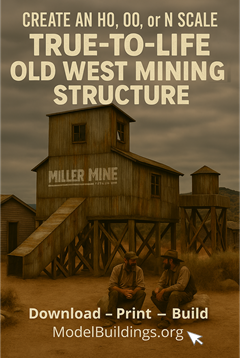
Thanks to everyone who participated in this quiz. I’m glad you enjoyed having a go.
The suggested locations were many and varied, although the mountains drew a number of suggestions including: Japan, Canada, Switzerland, Chile, Russia, Brazil, PA in the USA, Northern Italy, Soth Africa, Germany, Soth Korea, New Zealand, Sweden, Spain, Rochester – New York, Australia, Peru, East Africa, Indonesia, Austria, Burma, India, Ecuador – South America, and Slovakia.
Well done to Kevan Mullan who was first to guess the correct location which is revealed in the COMMENTS section below this post.